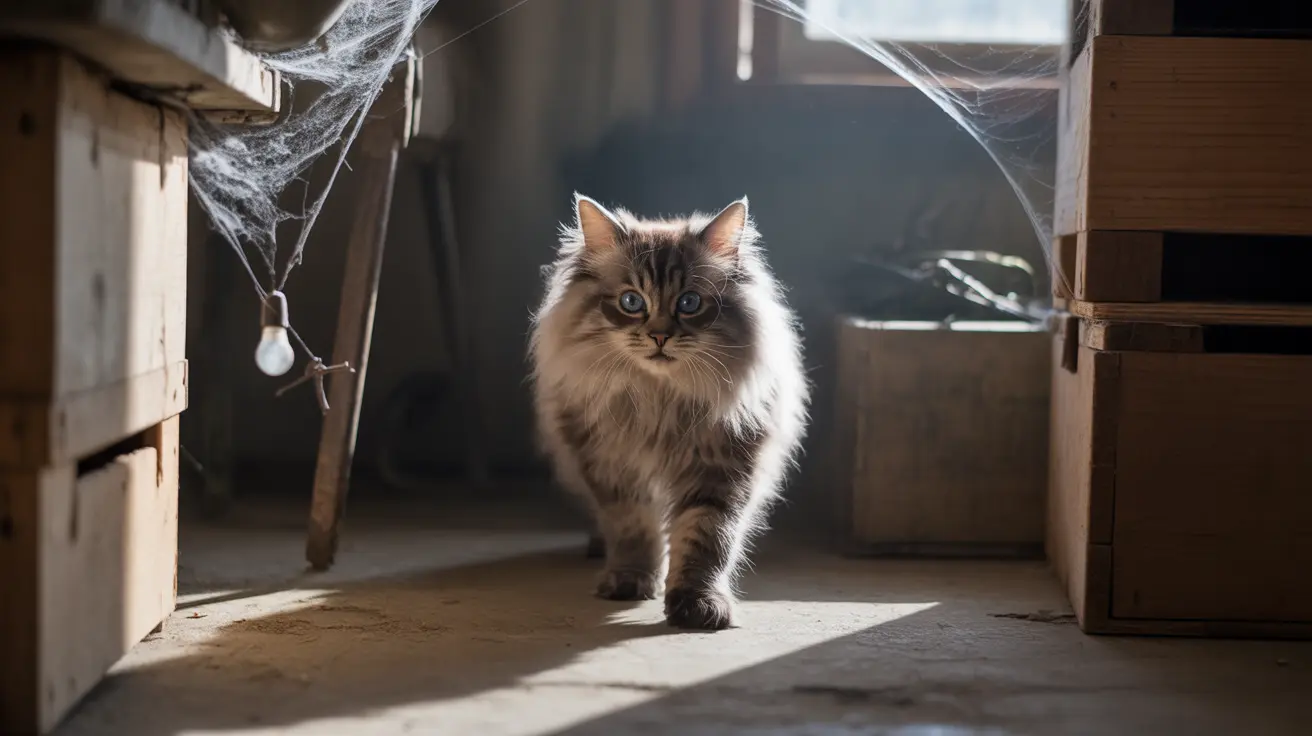Black widow spider bites pose one of the most serious venomous threats to cats in North America. These dangerous arachnids carry a neurotoxic venom that can be lethal to felines, often with devastating consequences if not treated immediately. Understanding this threat is crucial for any cat owner, especially those living in areas where black widow spiders are common.
The sobering reality is that yes, a black widow spider can kill a cat. Their venom is particularly toxic to felines - even more so than to humans or dogs. This guide will explore the dangers, symptoms, and critical actions needed if your cat encounters one of these deadly spiders.
The Deadly Impact of Black Widow Venom on Cats
Black widow venom contains alpha-latrotoxin, a powerful neurotoxin that's estimated to be 15 times more potent than rattlesnake venom by volume. Cats are especially vulnerable to this toxin due to their small size and unique physiology. A single bite can deliver enough venom to cause severe symptoms within hours or even minutes.
What makes this particularly dangerous is that cats often encounter black widows while exploring dark corners, garages, or outdoor spaces. Their natural hunting instincts and curiosity can lead them right into harm's way.
Critical Symptoms to Watch For
The effects of a black widow bite can progress rapidly in cats. Initial symptoms may be subtle but quickly escalate to severe conditions:
- Immediate pain and swelling at the bite site
- Severe muscle cramping and rigidity
- Difficulty walking or complete paralysis
- Excessive drooling and vomiting
- Respiratory distress
- Tremors and seizures
- Rapid heart rate
- Severe abdominal pain
Emergency Response and Treatment
If you suspect your cat has been bitten by a black widow spider, every minute counts. Immediate veterinary care is essential for survival. Treatment typically involves:
- Administration of antivenin when available
- Intensive supportive care
- Pain management
- Muscle relaxants
- Respiratory support
- IV fluids and monitoring
Without prompt medical intervention, the chance of survival decreases significantly. Even with treatment, recovery can take weeks, and some cats may experience lasting effects.
Prevention: Protecting Your Cat
Taking preventive measures is crucial in areas where black widows are present:
- Regular inspection of your home's dark corners and crawl spaces
- Removal of spider webs and potential hiding spots
- Keeping garages and storage areas clean and organized
- Using pet-safe pest control methods
- Limiting outdoor access during peak spider activity periods
- Sealing entry points around your home
Frequently Asked Questions
Can a black widow spider kill a cat, and what are the warning signs?
Yes, a black widow spider can kill a cat. Warning signs include severe muscle pain, paralysis, excessive drooling, vomiting, and respiratory distress. Death can occur within hours without treatment.
How do I identify a black widow spider bite in my cat?
While the bite mark itself may be hard to find, watch for sudden onset of pain, muscle rigidity, paralysis, excessive drooling, and respiratory problems. These symptoms typically appear within hours of the bite.
What should I do if my cat is bitten by a black widow spider?
Seek emergency veterinary care immediately. Do not attempt home remedies. Keep your cat calm during transport to minimize venom spread, and get to an emergency vet as quickly as possible.
How can I prevent black widow spider bites in my cat?
Keep your home free of spider webs, seal entry points, maintain clean storage areas, and consider pet-safe pest control. Supervise outdoor activities and keep cats away from areas where spiders commonly hide.
What are the treatment options for a black widow spider bite in cats?
Treatment includes antivenin administration when available, supportive care, pain management, muscle relaxants, and intensive monitoring. The earlier treatment begins, the better the chances of survival.
Understanding the severe threat that black widow spiders pose to cats is crucial for every pet owner. While these encounters can be fatal, prompt recognition of symptoms and immediate veterinary care can save your cat's life. Remember, prevention is always better than treatment, so take steps to protect your feline friend from these dangerous arachnids.






